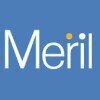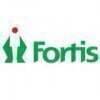Filter interviews by
SRI KUMARAN HOSPITAL Accounts Manager Interview Questions and Answers
SRI KUMARAN HOSPITAL Accounts Manager Interview Experiences
1 interview found
(2 Questions)
- Q1. About work experience
- Q2. About Expected salary
Interview Preparation Tips
Top trending discussions






Interview questions from similar companies

I applied via Recruitment Consulltant and was interviewed in Oct 2024. There was 1 interview round.
(2 Questions)
- Q1. What is GST?how its return?
- Ans.
GST stands for Goods and Services Tax, a value-added tax levied on most goods and services sold for domestic consumption.
GST is a consumption tax that is ultimately borne by the end consumer.
It is a single tax on the supply of goods and services, right from the manufacturer to the consumer.
GST returns are filed online through the GST portal, detailing the sales, purchases, and tax paid by a business.
There are different...
- Q2. What is TDS?HOW ITS FILLED
- Ans.
TDS stands for Tax Deducted at Source. It is a system where tax is deducted at the time of payment.
TDS is deducted by the payer and deposited with the government on behalf of the payee.
It is applicable on various incomes such as salaries, interest on securities, commission, etc.
TDS rates vary based on the type of payment and the payee's status.
TDS returns need to be filed quarterly by the deductor with details of TDS d...

Accounts Manager Interview Questions & Answers
Sahrudaya Healthcare (Medicover Hospitals)posted on 31 Aug 2023

(1 Question)
- Q1. Regarding the maib job responsibilties in thr previous companies q
(1 Question)
- Q1. Regarding Previous companies salary and botice period
Interview Preparation Tips

I applied via Campus Placement and was interviewed in May 2022. There were 2 interview rounds.
(3 Questions)
- Q1. Electrical machines or generators or motors
- Q2. Principals ,working,and parts
- Ans. Works on generators is exits voltage,and motors is exists on force
- Q3. How to working principal on generator
- Ans.
Generators work on the principle of electromagnetic induction.
Generators convert mechanical energy into electrical energy.
They use a rotating magnetic field to induce a current in a coil of wire.
The amount of voltage produced depends on the strength of the magnetic field and the speed of rotation.
Generators can be powered by various sources such as gasoline, diesel, or natural gas.
They are commonly used as backup power...
(1 Question)
- Q1. What is operation of AC to DC converter
- Ans.
AC to DC converter converts alternating current to direct current.
AC to DC converter is used to convert the voltage level of AC power to DC power.
It uses diodes to rectify the AC signal into a DC signal.
The output of the converter is a pulsating DC signal which is then filtered to produce a smooth DC signal.
Examples of AC to DC converters include rectifiers, power supplies, and inverters.
Interview Preparation Tips
- Electrical Engineering
- Electrical Machines
- Principal Component Analysis

I applied via Approached by Company and was interviewed in Mar 2024. There was 1 interview round.
(6 Questions)
- Q1. What is financial accounting
- Ans.
Financial accounting is the process of recording, summarizing, and reporting the financial transactions of a business.
Involves recording financial transactions
Summarizing financial data in financial statements like balance sheet and income statement
Reporting financial information to stakeholders like investors and regulators
- Q2. What is the formula of capital
- Ans.
The formula for capital is total assets minus total liabilities.
Capital = Total Assets - Total Liabilities
Total assets include cash, inventory, property, etc.
Total liabilities include debts, loans, accounts payable, etc.
- Q3. What are the 3 types of liabilities
- Ans.
The 3 types of liabilities are current liabilities, non-current liabilities, and contingent liabilities.
Current liabilities are obligations due within one year, such as accounts payable and short-term loans.
Non-current liabilities are obligations due beyond one year, such as long-term loans and bonds payable.
Contingent liabilities are potential obligations that depend on the outcome of future events, such as lawsuits o
- Q4. What are the assets
- Ans.
Assets are resources owned by a company that have economic value and can be used to generate future revenue.
Assets can include cash, accounts receivable, inventory, property, equipment, and investments.
Assets are typically listed on a company's balance sheet and are categorized as current assets or non-current assets.
Current assets are expected to be converted into cash within one year, while non-current assets are lon...
- Q5. What are the golden rules for accounting
- Ans.
The golden rules of accounting are basic principles that guide the process of recording financial transactions.
The golden rules include: Debit the receiver, Credit the giver; Debit what comes in, Credit what goes out; Debit expenses and losses, Credit income and gains.
These rules help ensure that financial transactions are accurately recorded and classified in the accounting system.
For example, when a company receives ...
- Q6. How many types of accounts
- Ans.
There are five main types of accounts: assets, liabilities, equity, revenue, and expenses.
Assets: resources owned by the company (e.g. cash, inventory)
Liabilities: obligations owed by the company (e.g. loans, accounts payable)
Equity: the owner's claim on the company's assets (e.g. common stock)
Revenue: income generated from the company's operations (e.g. sales revenue)
Expenses: costs incurred to generate revenue (e.g.
Interview Preparation Tips

I applied via Referral and was interviewed in Jul 2024. There were 3 interview rounds.
They gave question paper to solve problems
(2 Questions)
- Q1. About accounting
- Q2. About my working responsibility
(1 Question)
- Q1. Salary finalisation
Interview Preparation Tips

Accountant Interview Questions & Answers
Sun Pharmaceutical Industriesposted on 27 Oct 2023

(4 Questions)
- Q1. Define what is a balance sheet?
- Ans.
A balance sheet is a financial statement that provides a snapshot of a company's financial position at a specific point in time.
It shows the company's assets, liabilities, and shareholders' equity.
Assets include cash, accounts receivable, inventory, and property.
Liabilities include loans, accounts payable, and accrued expenses.
Shareholders' equity represents the company's net worth.
The balance sheet follows the formula...
- Q2. Describe the golden rules of Accounts?
- Ans.
The golden rules of Accounts are basic principles that guide the recording of financial transactions.
The first golden rule is the Personal Account rule, which states that debit the receiver and credit the giver.
The second golden rule is the Real Account rule, which states that debit what comes in and credit what goes out.
The third golden rule is the Nominal Account rule, which states that debit all expenses and losses
- Q3. Describe Types of Accounts ?
- Ans.
Types of accounts include assets, liabilities, equity, revenue, and expenses.
Assets: Resources owned by a company, such as cash, inventory, and property.
Liabilities: Debts or obligations owed by a company, such as loans and accounts payable.
Equity: Represents the owner's interest in the company's assets after deducting liabilities.
Revenue: Income generated from the sale of goods or services.
Expenses: Costs incurred in ...
- Q4. Theer Different types of accounts in accounting are Real account, Personal account and Nominal Account. Real account is then classified in two subcategories – Intangible real account, Tangible real account...
(4 Questions)
- Q1. Tell me about yourself.
- Q2. Why do you want to work for our company?
- Q3. Why are you looking for a change?
- Q4. What are your greatest strengths and weaknesses?

Senior Executive Finance & Accounts Interview Questions & Answers
Aster Dm Healthcareposted on 15 Apr 2023
I applied via Naukri.com and was interviewed before Apr 2022. There were 2 interview rounds.

(2 Questions)
- Q1. They asked regarding previous experiences
- Q2. General accounting questions

Assistant Accounts Manager Interview Questions & Answers
Poly Medicureposted on 27 Dec 2021
I applied via Naukri.com and was interviewed in Nov 2021. There was 1 interview round.
Interview Questionnaire
1 Question
- Q1. IND AS based
Interview Preparation Tips

Senior Accounts Executive Interview Questions & Answers
Fortis Healthcareposted on 14 May 2022
I applied via Recruitment Consulltant and was interviewed before May 2021. There were 3 interview rounds.
(1 Question)
- Q1. Introduction about ourself
(1 Question)
- Q1. Question on GST, TDS and Basic accounts
(1 Question)
- Q1. Basic accounts related question
Interview Preparation Tips
SRI KUMARAN HOSPITAL Interview FAQs
Tell us how to improve this page.
Interview Questions for Popular Designations
- Accountant Interview Questions
- Senior Accounts Executive Interview Questions
- Executive Accountant Interview Questions
- Accounts Officer Interview Questions
- Account Assistant Interview Questions
- Accounts & Finance Executive Interview Questions
- Accounts Payable Executive Interview Questions
- Senior Accountant Interview Questions
- Show more
SRI KUMARAN HOSPITAL Accounts Manager Interview Process
based on 1 interview
Interview experience
Interview Questions from Similar Companies
|
Lab Technician
3
salaries
| ₹1.1 L/yr - ₹2.4 L/yr |

Apollo Hospitals

Fortis Healthcare

Manipal Hospitals

Columbia Asia
- Home >
- Interviews >
- SRI KUMARAN HOSPITAL Interview Questions >
- SRI KUMARAN HOSPITAL Accounts Manager Interview Questions








